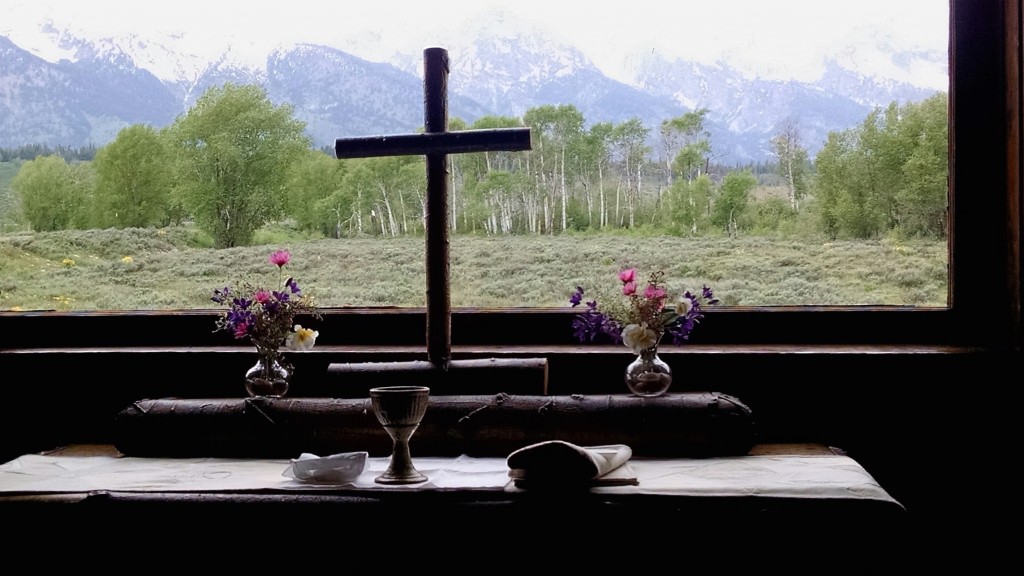The Feast Day of Bernard Meziki
Psalm 124; Nehemiah 6:6-11; Revelation 7:13-17; Luke 12:2-12
Recently I was at the Chapel of the Transfiguration in Moose, Wyoming, to give a homily at a friend’s father’s funeral. In that tiny church, gazing through the large window over the altar, one is immersed in a gorgeous vista. Graceful mountain peaks adorned with necklaces of waterfalls and kerchiefs of snow rise above aspen, pine, sagebrush and a profusion of wildflowers. It was a perfect setting from which to say goodbye to a man who had spent much of his adult life reveling in this landscape.
We used Eucharistic Prayer C, and my homily built on its imagery, springing from an article I had just seen in The Christian Century. It featured descriptions of gaseous clouds billions of miles wide and the births of planets and stars. It also built on the view outside the window. God is a consciousness that permeates each particle in existence while at the same time dwelling beyond them, I said, a force always creating, always changing. And – here’s the miracle beyond reckoning – God holds every single one of us very dear. As John O’Donohue says in his book, Anam Cara, for millions of years before our birth, each of us was planned for and anticipated. To be born is to be chosen.
The magic combination of factors that allows a sermon to really impact the people hearing it was present that day. Many told me how my words resonated. One young woman, a CNA who attends many funerals and memorial services as the people with whom she works pass away, told me she is usually repelled by church concepts and doctrine. But my words were in a language she could understand.
Bernard Meziki, the African catechist and martyr whose Feast Day we celebrate today, was a brilliant linguist. He learned the languages of the people whom he served and then he spoke to them through familiar concepts, finding the places where their hearts were already open to wonder and mystery. In this fertile soil in their souls he planted the Gospel. He spoke for Christ about God’s unbelievable love.
There are many ways to be good linguists. Sometimes it is in making the Gospel stories our own and repeating them in our own words. Sometimes it is in speaking simply about our own relationships with the living God. It can be through doing something that reveals the love of God for those whom we serve. And sometimes it is in learning somebody else’s concepts and speaking about Christ through them.
At the funeral, in my enthusiasm, I invited everybody to the Communion Table. What I said was that it is a place where we can get as close as it is possible to be in our three dimensional world to the oneness with God and one another that is the Kingdom of Heaven. Fortunately our celebrant reiterated the invitation. And to my surprise quite a few people, many obviously unfamiliar with the Eucharist, came up and participated. All any of us ever needs is an invitation in a tongue we can understand.
Laurie Gudim is a writer and religious iconographer who lives in Fort Collins, CO. You can view some of her work at Everyday Mysteries.
Photograph by Laurie Gudim

